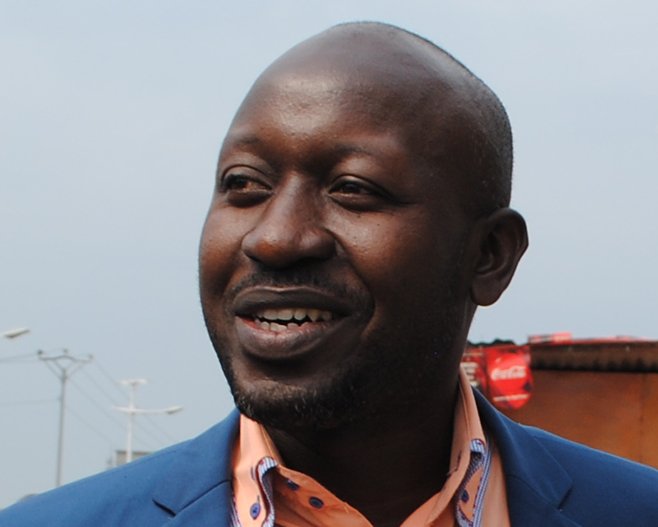
Open letter to Reginald Richardson
17 November 2016Dear Richardson,
I was out of the country when you and your producer, Keikantse Shumba were suspended for airing a voice over clip on your popular morning show of an alleged meeting between Vice President Mokgweetsi Masisi and some opposition politicians who were being lured into the ruling party.
The media reports indicate that Botswana Democratic Party (BDP) Chairman for Communication and International Relations sub-committee, Thapelo Pabalinga prevailed over your bosses at Gabz FM that while exposing Masisi’s Machiavellian recruitment tactics, you did not offer them a right of reply. My first instinct was to listen to the tape, and, quite frankly I am disappointed in your management’s decision to try to censor your work. To me, it was a litigation-free newsworthy scoop. I also established that you had interviewed a person who was directly involved in the BDP schenanigans. And that the BDP has been relentless in complaining about your show. So I held my breath, wondering why then have you been suspended. It occurred to me that the recording had embarrassed BDP top echelon. Your last week’s experience reflects the vulnerability we face as journalists.
But again, I am not writing to remind you about Pabalinga’s petulant complaint or Gabz FM’s cowardice and self-censorship. I am writing to tell you that while I was at the African Investigative Journalism Conference in Johannesburg, I met Bob Rugurika, a Burundi journalist, currently in exile in Brussels. Just like Edgar Tsimane, last year, Rugurika had to flee his country after President Pierre Nkurunziza shut down his radio station – Radio Publique Africaine (APR) and deployed police to hunt him down. Rugurika had earlier spent a month in prison before fleeing, first to Rwanda, then Belgium. You might not have done time in prison, but you strike great similarities with Rugurika. Both of you are courageous journalists who believe in the power of independent broadcast journalism as a tool to preserve democracy and accountability. Your focus and persistence continues to impact society and help secure service delivery. It is easy to understand why Masisi might have been fidgeting when he listened to his recording that morning. Your innovative morning show programme has been able to engage and empower the public through in-depth reporting. Much like Rugurika, you have been relentless in shinning an investigative journalism light on politicians, in some cases to the detriment of your own radio station which has been bowing to pressure from politicians and intolerant union leaders. I am aware that your morning show has been deliberately watered down to please a section of BDP politicians. I have a sinking feeling every time I realise that Gabz FM turns a blind eye to censorship and hostility against press freedom, especially when security agents led by DIS director general Isaac Kgosi waited outside your station to arrest controversial US pastor, Andrew Anderson. If you think that was a random act by piqued immigration officials you will be utterly surprised to learn that BDP has strategies to make serious journalism difficult for you. There are parallels between Masisi and Nkurunziza. Both are paranoid.
![[Photo: www.thegazzettenews.com]](http://inkjournalism.org/wp- content/uploads/2016/11/the-gazzette.new_-300x243.jpg)
[Photo: www.thegazzettenews.com]
Politicians have a way of trying to intimidate and silence critical media and journalists under the guise of restoring ethical standards in newsrooms. In 2014 Nkurunziza banned jogging, fearing it was being used as a cover for subversion.. The problem is that paranoia is griping the ruling party and my fear is that this insecurity will snowball into full blown censorship as we approach BDP elective congress next year.
Just like Gabz FM, APR radio station in Bujumbura had a solemn task of ensuring that it represents the views of those who have been silenced and marginalised. You pose a serious threat to Masisi who does not do well under media spotlight – and will not waste an opportunity to flex his executive muscles and intimidate you under the disguise that you have not balanced your story.
After 10 years of a government hostile to private media, it is disappointing to come to terms with the reality that Masisi – who will be assuming the presidency in 18 months – does not represent an alternative that many so authentically need.
Botswana is increasingly gaining a top spot as a jailer of journalists. Over the past 24 months, together with 11 other journalists, you have been detained, harassed or intimidated by police for doing your job. Sunday Standard reporter, Edgar Tsimane had to flee to South Africa. Thankfully, no journalist has been killed.
In Burundi, the Committee to Protect Journalists reports that over 100 journalists have been forced to flee the country under Nkurunziza. Those who remain in Burundi face imprisonment, or worse. Four radio stations have been forcibly closed down by armed police officers after Nkurunziza defied the country’s constitution and ran for a third term. I asked Rugurika if he has words of encouragement for you and those who live in a country that is increasingly hostile to private media. “We can make this world a better place if don’t give in to pressure,” he says, and adds without hesitation. “I don’t have fear to say that we have a criminal government (in Burundi).” As a journalist, you and I can relate to Rugurika’s vulnerabilities. Our situation is dared, unlike other developed democracies; we do not have strong media institutions with a collective orientation to sustainably fend off BDP pressure. Giving in to Pabalinga’s stroppy attitude was a miscalculation by your radio station and an extremely dangerous precedence. Your experience teachers us all that; you are extremely vulnerable if you do not have the backing of thick skinned management that can stand up to blandishment of politicians; and that bowing to political pressure breeds self-censorship. This is collective vulnerability for all serious journalists. We need stronger media organisations if we are to fight this censorship and restore public confidence in what we do.
The harsh reality is that Botswana is trapped in a general deepening political, economic and social crisis which has for many years begun to turn what was a country of hope into another failing African state. What is important is to keep your head up despite the hostile environment you find yourself in. Bob remains defiant and promises to return to the “criminal government” of Nkurunziza when the conditions are right in Bujumbura. In the moment APR broadcasts outside Burundi on short-wave and online. But other three radio stations remain closed in Burundi. I can only wish you all the best of luck!


Join the Conversation